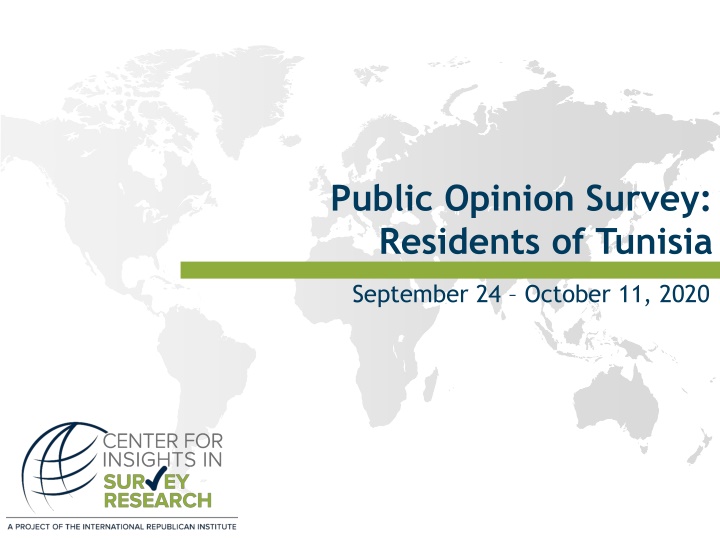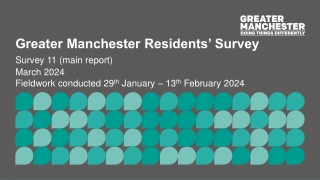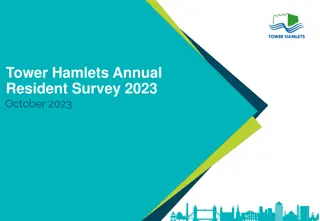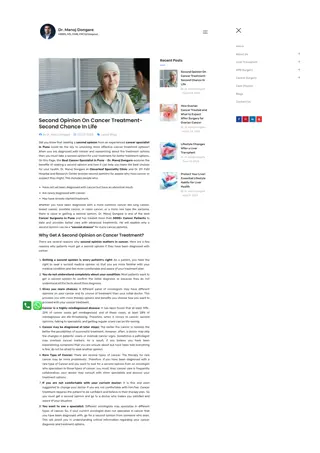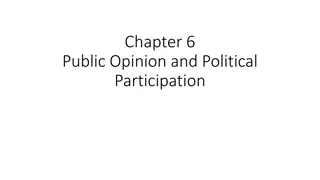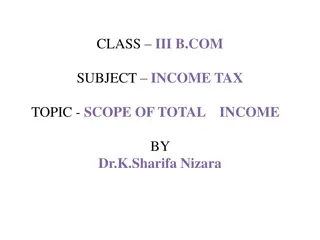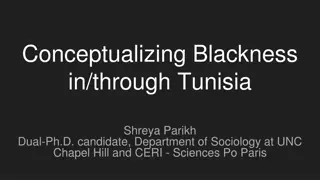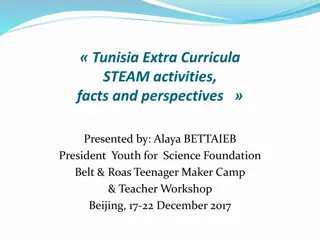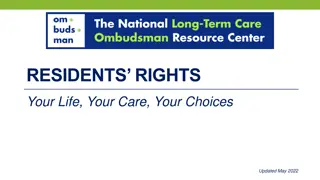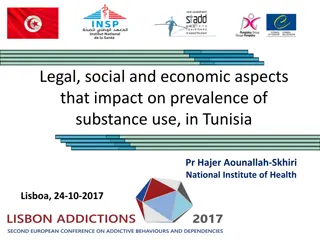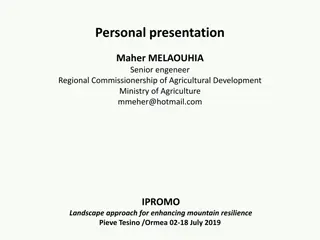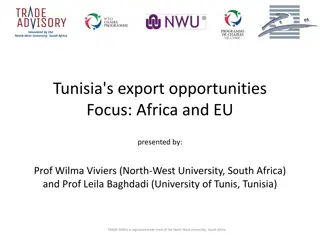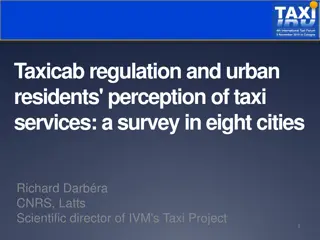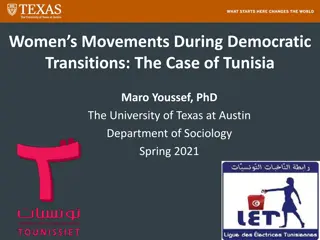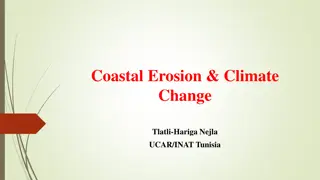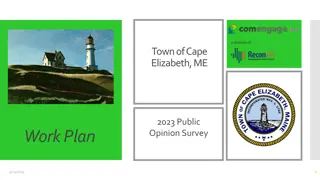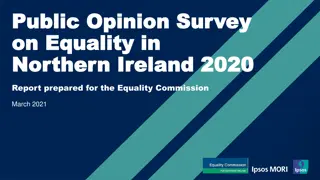Public Opinion Survey: Residents of Tunisia - September 2020
Survey conducted in Tunisia about residents' views on the country's direction and the most pressing issues. Data collected face-to-face, covering topics like direction perception and key challenges such as COVID-19, economy, corruption, and healthcare.
Download Presentation

Please find below an Image/Link to download the presentation.
The content on the website is provided AS IS for your information and personal use only. It may not be sold, licensed, or shared on other websites without obtaining consent from the author.If you encounter any issues during the download, it is possible that the publisher has removed the file from their server.
You are allowed to download the files provided on this website for personal or commercial use, subject to the condition that they are used lawfully. All files are the property of their respective owners.
The content on the website is provided AS IS for your information and personal use only. It may not be sold, licensed, or shared on other websites without obtaining consent from the author.
E N D
Presentation Transcript
Public Opinion Survey: Residents of Tunisia September 24 October 11, 2020
Detailed Methodology The survey was conducted by a Tunisian-owned and operated marketing research firm, ELKA Consulting, on behalf of the International Republican Institute s Center for Insights in Survey Research. Data was collected from September 24 October 11, 2020 through face-to-face interviews at respondents homes by trained interviewers in Arabic. All data was collected on CAPI Solution tablets. The national sample consisted of n=1,200 respondents and is representative of the population of Tunisia aged 18 and older. Respondents were selected using a multi-stage stratification proportionate to population size. Stratification was based on three stages: a proportional division among Tunisia s 24 governorates; proportional division of urban and rural categories; and proportional division by gender and age group according to the most up-to-date data from Tunisia s National Statistics Institute collected in 2014. The sample was then post-weighted to make it proportionate to national representation by governorate, as well as adjusted for gender and age. Each governorate was divided into territorial sections or districts. In each territorial section, at least one sampling point was selected with the overall number of points determined by population density. Sampling points were distributed proportionally between rural and urban areas in every governorate and in every geographical section of the governorate. Households were selected using a random route method. A left-hand rule was employed to attempt interviews at every third household encountered along the route. The Kish grid method was used to select respondents 18 years and older within randomly selected households. The overall margin of error is plus or minus 2.8 percent at the midrange of the 95 percent confidence level. The response rate was 70 percent. Figures in charts and tables may not add up to 100 percent due to rounding. The information in this report has been compiled in accordance with international standards for market and social research methodologies. 2
In general, would you say that our country is heading in the right direction or in the wrong direction? 100% 87% 87% 90% 84% 83% 83% 83% 79% 77% 77% 80% 72% 72% 71% 68% 67% 67% 70% 67% 62% 61% 60% 48% 50% 47% 45% 40% 44% 30% 32% 30% 30% 25% 28% 26% 20% 12%23% 21% 21% 16% 8% 9% 19% 19% 10% 13%13% 5% 4% 13% 5% 4% 3% 11% 5%10% 8% 7% 7% 4% 6% 6% 3% Jun-15 5% 5% 4% 0% 5% Jan-19 4% Nov-17 Jun-13 Jun-14 Jun-19 Apr-12 Apr-17 Sep-14 Sep-20 Jan-12 Jan-13 Aug-12 Feb-14 Nov-15 May-16 Dec-16 Dec-19 Oct-11 Oct-13 Right direction Wrong direction Don't know/Refused 3
What is the most important problem facing our country today? (Spontaneous response) COVID-19 25% Economy unemployment 23% Economy cost of living, high prices 16% Corruption 7% Economy other/general 5% Healthcare 3% Insecurity 3% Internal conflicts 2% Poverty 2% Crime/Public safety 2% Education 1% Economy small business opportunities/access to loans 1% Terrorism 1% Other (political conflicts, political parties, strikes/sit-ins etc.) 9% Don't know/Refused 2% *Mentions of less than 1% are merged into Other. 4
What, among the following, should be the top priority for the government? Youth employment/Opportunities for youth 20% Mitigating COVID-19 16% Employment 15% Economic development and reform 12% Living standards 11% Corruption and transparency 7% Improve public services 4% Social reforms 4% Security 4% Improve service delivery (trash, roads, mail, etc.) 3% Winning the war on terrorism 1% Development of southern and interior regions 1% Don't know/Refused <1% 5
What do you think is the best way to increase jobs in Tunisia? Reduce corruption 22% Improve education/Vocational training 20% Increase foreign direct investment 19% Reduce government regulation 10% Expand public sector 9% End strikes/Sit-ins 8% Improve security 5% Increase tourism 3% Other 2% Don't know/Refused 2% 6
For the following issues, is the national government doing a very good, somewhat good, somewhat bad or very bad job? Fighting terrorism 30% 41% 9% 16% 4% Fighting COVID-19 13% 31% 21% 34% 1% Providing services (health care, electricity, clean water) 7% 27% 21% 43% 1% Encouraging investment in Tunisia s economy 5% 26% 22% 41% 5% Fighting corruption 9% 19% 17% 51% 3% Creating jobs 3% 16% 24% 55% 2% Very Good Somewhat Good Somewhat Bad Very Bad Don t Know/Refused 7
Now I would like to discuss corruption with you. When I say corruption, I mean having to do a favor, give a gift or pay a bribe because someone misuses their position for personal gains. To what extent, if any, has corruption had a negative impact on you? It has had a lot of negative impact 69% It has had some negative impact 9% It has had little negative impact 7% It has not had any negative impact 13% Don't know/Refused 2% 9
In the past 12 months, how often, if at all, have you had to do a favor, give a gift or pay a bribe? Daily 2% Weekly 2% Monthly 3% Less frequently 15% Not at all 76% Don't know/Refused 1% 10
From this list of institutions, tell me if you have personally experienced corruption with: Police, including traffic police 23% 77% Hospitals 18% 82% Public administration 13% 87% Courts 9% 91% Private businesses 7% 93% Public schools 6% 94% Welfare and benefits services 5% 94% 1% Banks 4% 96% Religious institutions 1% 99% Yes No Don't know/Refused 11
Which among the following groups is the most important to effectively address corruption in our country? (Up to three mentions accepted) Second most important Third most important Most important Total Political leadership 31% 13% 7% 52% Citizens 19% 19% 13% 52% Media 19% 16% 13% 48% Public sector employees 8% 9% 8% 25% Domestic NGOs/CSOs 6% 8% 10% 24% International NGOs/CSOs 4% 6% 5% 15% Private sector 5% 4% 6% 14% 12
To what degree, if at all, is it the responsibility of citizens to address corruption? To a very large degree 59% To a somewhat large degree 14% To a somewhat small degree 13% To a very small degree 13% Don t know/Refused 1%
What, in your opinion, is the greatest cause of corruption in our country? Poverty and necessity 34% Lack of government control and oversight 31% The actions of business leaders and oligarchs 21% Education levels of citizens 8% Custom and history 3% There is no corruption 1% Other 2% Don t know/Refused 1%
In your experience, what type of corruption is most common in our country? Acting in self-interest instead of interest of citizens 28% Stealing or deliberately mismanaging funds 27% Soliciting bribes or gifts 23% Making decisions based on connections as opposed to merit 8% Failure to investigate or prosecute wrongdoing 5% Extortion 4% Other 1% None of these exist in our country 2% Don t know/Refused 4%
In your dealings with the government, how important are personal contacts and/or relationships to get things done? Very important 63% Somewhat important 11% Somewhat unimportant 4% Very unimportant 20% Don t know/Refused 2%
Center for Insights in Survey Research 202.408.9450 | info@iri.org www.IRI.org | @IRIglobal 17
